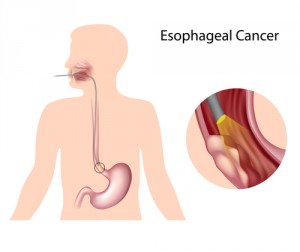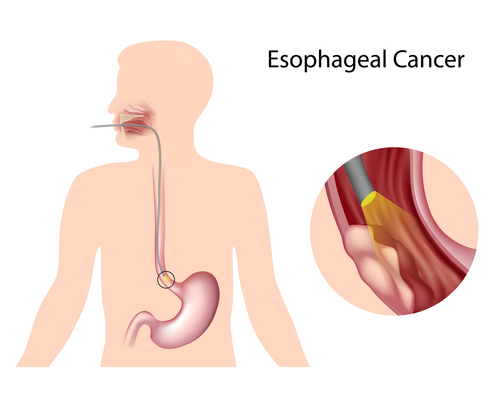 Radiation therapy (RT) alone is as effective in decreasing swallowing complications occurring in advanced esophageal cancer patients as RT combined with chemotherapy, according to a study entitled, “Best Practice in Advanced Oesophageal Cancer: A Report on TROG 03.01 NCIC CTG ES.2 Multinational Phase III Study in Advanced Oesophageal Cancer (OC) Comparing Quality of Life (QoL) and Palliation of Dysphagia in Patients Treated with Radiotherapy (RT) or Chemo-Radiotherapy (CRT),” presented at the American Society of Radiation Oncology’s (ASTRO) 56th Annual Meeting in San Francisco.
Radiation therapy (RT) alone is as effective in decreasing swallowing complications occurring in advanced esophageal cancer patients as RT combined with chemotherapy, according to a study entitled, “Best Practice in Advanced Oesophageal Cancer: A Report on TROG 03.01 NCIC CTG ES.2 Multinational Phase III Study in Advanced Oesophageal Cancer (OC) Comparing Quality of Life (QoL) and Palliation of Dysphagia in Patients Treated with Radiotherapy (RT) or Chemo-Radiotherapy (CRT),” presented at the American Society of Radiation Oncology’s (ASTRO) 56th Annual Meeting in San Francisco.
Researchers analyzed the use of palliative chemotherapy combined with RT or chemoradiotherapy (CRT), to provide relief from dysphagia (difficulty swallowing), a complication associated with advanced esophageal cancer.
Using patient-reported and clinician-reported questionnaires, the team evaluated the effectiveness of RT alone versus CRT concerning swallowing ability, quality of life, potential side effects and adverse events that affected the entire body.
A group of 220 patients were randomized to receive a course of palliative RT, either 35 Gy in 15 fractions or 30 Gy in 10 fractions. Of the total cohort, 109 patients received only RT, and 111 received concomitant CRT including Cisplatin and 5FU (fluorouracil).
Using the Mellow scoring system, which measures swallowing on a scale of 0 to 5 based on the patient’s ability to swallow liquids or solids, the team determined the level of dysphagia, with the primary end point set to the proportion of patients with improved dysphagia at week 9 and maintained until week 13.
The results demonstrated that 67.89% of patients who received RT alone had a favorable dysphagia response compared to 73.87% of patients who received CRT. However, this last group of patients developed gastrointestinal side effects such as nausea and vomiting.
[adrotate group=”1″]
Furthermore, the median survival was 203 days for patients who received RT alone and 210 days for patients who had CRT, showing there was a comparable survival prognosis for both groups.
“This study was the largest, randomized, phase three trial of advanced esophageal cancer and was a significant undertaking for a ‘palliative care’ trial, namely where the emphasis was on the best, yet simplest and least toxic treatment to alleviate pain. It is common for chemotherapy to be prescribed for patients with advanced esophageal cancer, and this is based on the standard use of CRT in people with less advanced disease. However, some clinicians believe no treatment should be offered, assuming treatment is futile and potentially toxic. These results will allow us to simplify the treatment for patients who cannot be cured but who can expect an improvement in swallowing and quality of life as a result of RT alone; and these patients can be spared the extra toxicity and cost of chemotherapy,” lead author Michael Penniment, MBBS, MBA, FRANZCR, director of radiation oncology at Royal Adelaide Hospital in South Australia and the director of radiation oncology at Alan Walker Cancer Care Centre in Darwin, Australia, said in an ASTRO press release.


